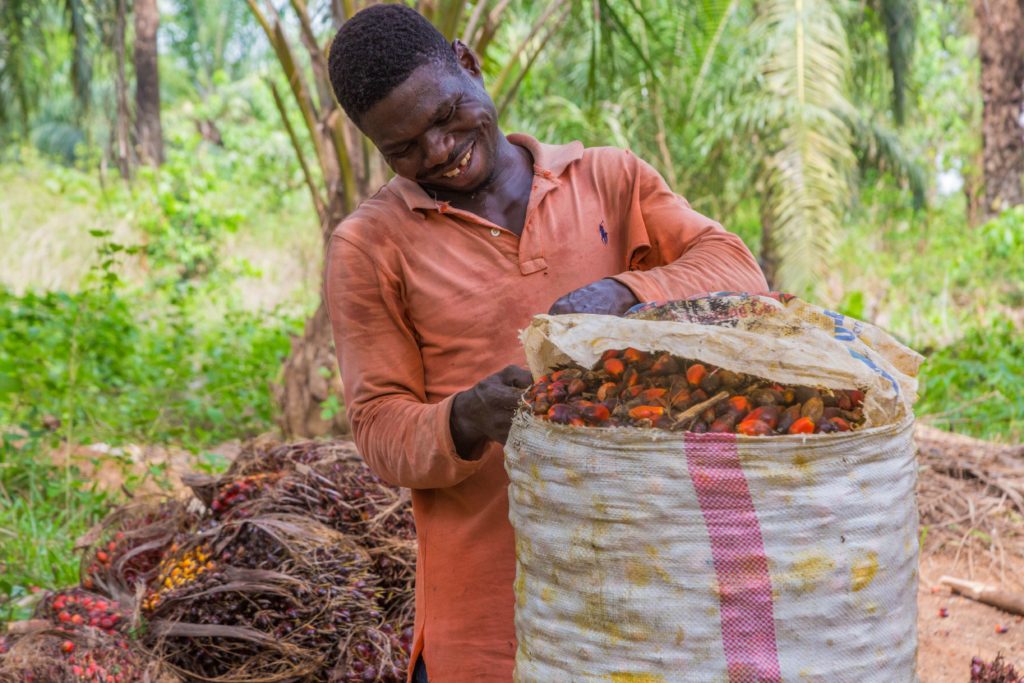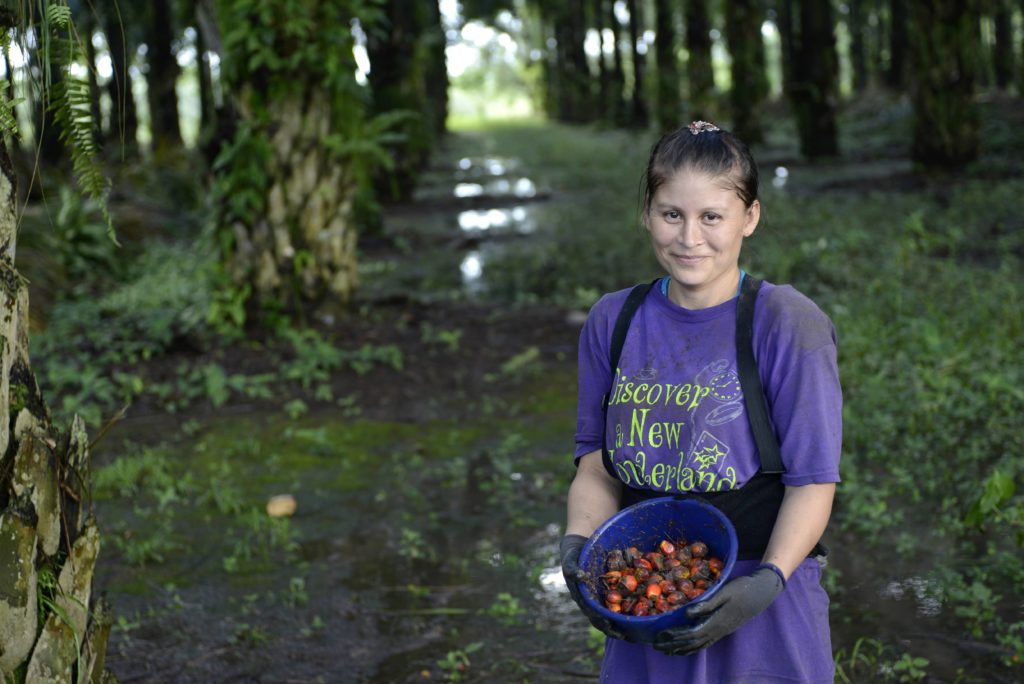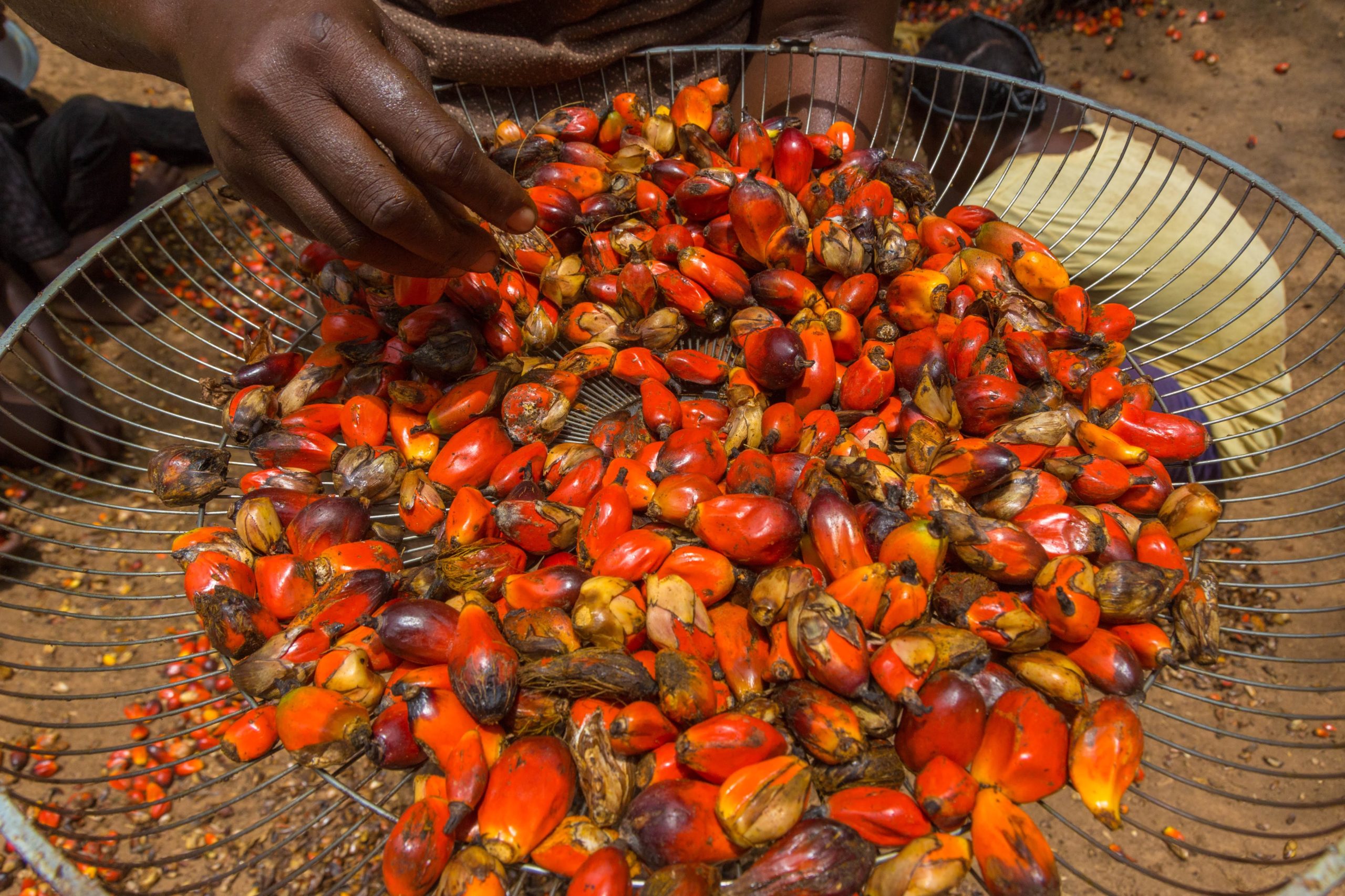Sustainability achievements in the palm oil sector are currently flooding the expert newsletters. The year 2022 is “on track to record Indonesia’s lowest palm-oil-driven deforestation”, whilst 93% of the EU imports of palm oil for food, feed, and oleochemicals are RSPO-certified. European companies have made big efforts to cut ties with the worst deforesters, and the deforestation risk for imported palm oil is getting lower and lower. It’s great to see that the combined efforts of NGOs, companies, governments and, above all, farmers, have made this progress in sustainable development.
Image is a sticky matter
Yet, these expert insights do not resonate with a larger audience, and the idea that palm oil is bad in itself is still dominating the palm oil discourse in Europe. No matter the improvements made by the sector, the smeared image of palm oil is sticky. While we should of course address companies’ wrongdoings, it is important not to overlook the positive effects of the sector and its role in sustainable development in the global south.
Challenging market dynamics
Along with these sustainability achievements comes the diminishing palm oil market power of EU-based companies. While consuming 45% of RSPO-certified palm oil produced worldwide, the EU is responsible for less than 10% of global palm oil consumption. The EU’s palm oil use has been decreasing since 2021 and will continue to do so as its use in biodiesel is phased out ahead of the 2030 deadline. (In 2020, 69% of the EU’s palm oil consumption was for biodiesel production.) This means that EU-based buyers are losing leverage over producers in the global south. With less demand from Europe and increasing demand from Asia and Africa, what incentive do producers have to comply with Europe’s strict sustainability requirements?

Calling for a new discourse
The developments I mention above call for a new discourse. The old discourse of demonizing and banning palm oil is no longer fit for purpose. While we should, of course, pay attention to the worrisome messages on controversies and address the ongoing grievances, it’s time for palm oil to reclaim its place as an enabler: it should be considered as a crop that can contribute to sustainable development, such as cocoa and coffee.
By simply isolating palm oil’s impact on the environment from the poverty crisis, it’s easy to overlook the positive role it can play in smallholders’ livelihoods. For Solidaridad, it’s time to reclaim the sustainability debate for the almost three million oil palm smallholder farmers who are the first step in the value chain, producing about one third of global palm oil.
We do this, for example, with our first global Palm Oil Barometer, in which we argue that we need to develop and support integrative approaches to rural development that centre the needs of local people and nature. In doing so, we can avoid poverty-driven migration and food insecurity. Focussing on land managed by smallholders is a useful starting point. Their yields are often low; however, with appropriate investments, they can produce more within the same area, avoiding the need for further deforestation. This should be accompanied by a fairer value distribution, with farmers receiving a larger share of the profits generated.

Growing demand for edible oils
Besides its role of generating a livelihood for farmers, the discussion on sustainable palm oil needs to take place in the context of a growing global demand for edible oils and fats. For billions of people in the global south palm oil is the oil of choice. As the Edible Oils and Fats Collaboration and the Forum for the Future argue, all major vegetable oils and animal fats should be assessed as a single market “presenting a comparison of their environmental, social, nutritional and financial impacts”. These organizations conclude that there is a lack of understanding about how various industrial fats and oils compare against each other in environmental, social and nutritional terms. This lack of understanding simplifies the debate into “good vs. bad”, with palm oil getting all the blame. But it is not that black and white.
This collaboration rightly states that no single crop holds all the answers. For example, palm oil has by far the highest yield and best incomes for smallholders, but its production takes place in a landscape that also potentially has the highest biodiversity value. Such a complex problem cannot be solved with a simple answer. We need to find a balance between the production of different crops, taking into account all relevant environmental and social aspects.
Searching for real solutions
A new discourse on palm oil should thus not be limited to palm oil. Let’s ditch the oversimplified marketing phrase ‘no palm oil’ and search for real solutions. The oil palm should be discussed as one of the crops that can feed the world, ensuring that farmers prosper in balance with nature.
The recently published Palm Oil Barometer makes the case for integrative approaches to rural development that center the needs of local people and the environment.

